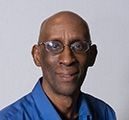
Seek a mentor that’s in a higher position than you. Often times, companies have programs for this. Politely asking to be more included in meetings, or clearer communication never hurts.

Feeling excluded can be a huge downer. It can take away your motivation and adversely affect your performance. One way to avoid this is to be proactive in your day-to-day approach. Make sure you take care of all your work responsibilities, and make it be known that you take pride in your work and strive to do a good job. Reach out to your bosses and coworkers to see if there are areas outside your immediate responsibilities where you could make a positive contribution. Speak to senior-level coworkers and ask for their advice and input. Displaying an eagerness to learn from more experienced workers should help convince them that it is worth their time to include you in relevant discussions, meetings, and events.

If you feel excluded at work, consider discussing this with your manager. Be prepared to explain the situation(s) that make you feel as if you’ve been excluded. Also be prepared to tell your manager what you’ve done to address the situation. It’s also important to remember that emails aren’t conversations – consider speaking directly with colleagues either in person or over the telephone or video if your company has that capability.

Participate. Make friends by talking about the weather and other non-work related things. We all have things in common - our commute, our wives, husbands, brothers, sisters, friends, etc. Talk about these things and not about work - until someone asks you. Then you have permission to talk about it. Remember - it is like tennis, they ask you, and then you ask them. Keep it short and give them time to think.
This article has been edited for length and clarity. The opinions expressed in this article are the author's own and do not necessarily reflect the view of their employer or the American Chemical Society.
ACS Career Consultants are experts and leaders working in the field of chemistry who have volunteered to support other ACS members’ career development through one-on-one career counselling. They can stimulate your thinking, ask important career planning questions to help clarify goals, provide encouragement, teach strategies for making meaningful career decisions, and aid you in your job search. Connect with an ACS Career Consultant today!
Copyright 2019 American Chemical Society (All Rights Reserved)







